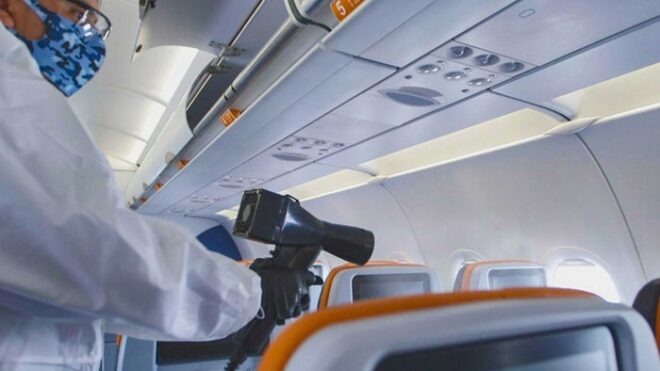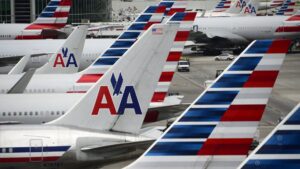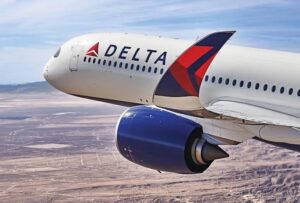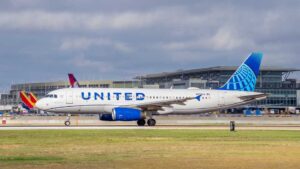
The coronavirus (COVID-19) pandemic reshaped the global economy, along with the day-to-day lives of almost everyone on earth.
Now that many countries have reopened and restrictions are being lifted, getting back to traveling is a priority for many. However, don’t expect things to be the same onboard planes as they were in pre-pandemic times.
With constantly shifting guidance across various governments, airlines are doing their best to keep up while ensuring passengers are safe and comfortable.
Initially, some airlines blocked seats to promote social distancing to entice flyers and their wallets, while others filled planes to capacity to try to make up for lost revenue. Now, you can expect a full flight and a busy airport on your next trip.
While these changes can be confusing for travelers, we have a one-stop shop with everything you need to know about your next flight and what the airlines are doing to keep you safe. We’ve detailed what the world’s top airlines are doing when it comes to mask requirements, blocked seats, service cuts, and more.
Service Changes
On flights where meals are offered, a prepackaged meal is served with an antiseptic wipe included in the meal box.
Bar service is combined with meal service to minimize contact between the cabin crew and passengers.
Lounges
On the ground, lounges are regularly cleaned in sections using an electrostatic disinfectant sprayer and guests can enjoy prepackaged meals or order via smartphone.
Tables, chairs, and bathrooms are sanitized after each use. However, showers are not available.
A record of all guests is kept for 30 days as a method of contact tracing in case a passenger has tested positive for the coronavirus.
Finally, the BMW Chauffeur Service for Air Canada Signature Class customers is temporarily suspended.

American never blocked seats or scanned temperatures, but the airline did partner with Purell, so you will have access to good hand sanitizer.
AA has been pretty generous with its cancellation policies throughout the pandemic, and, in a surprising move, is even waiving change fees (formerly up to $200) on international flights that originate in North or South America. This is valid for tickets in first class, business class, premium economy, and main cabin, but not basic economy.
American has partnered with LetsGetChecked, a company that provides at-home COVID-19 tests, to facilitate testing for passengers flying to destinations where a negative result is needed for entry.
For passengers flying from Dallas-Fort Worth International Airport (DFW), there is also an option for onsite rapid tests administered by CareNow. American Airlines passengers with at least 10 days before their flight can redeem 12,000 miles for an at-home COVID-19 test.
Additionally, passengers traveling to the U.S. can download the digital health passport app VeriFLY to upload their negative COVID-19 test to a mobile health passport and receive a QR code to help facilitate the check-in process.
Delta Air Lines

A global pandemic wouldn’t be complete without some branding opportunities, so Delta has partnered with Lysol to “set the standard for a cleaner and hygienic travel experience.”3
Delta has also rolled out Delta CareStandard, which puts measures in place to help keep passengers safe and give them more peace of mind, including the new antimicrobial bins at select TSA security checkpoints in the U.S.
To see when and where Delta is flying, check out this map of travel requirements and restrictions.
Additionally, Delta rolled out an at-home COVID-19 testing program so passengers can test themselves and upload the results before departure and pack another test to take before returning back to the U.S. If you have booked a Delta Vacations package outside of the U.S., your hotel may provide you with an on-site COVID-19 test to adhere to the rules for arriving passengers.
Safety Precautions
For a while, Delta was blocking seats to encourage social distancing, however, that ended in May 2021.
The airline also tried boarding from the back of the plane to the front, but that was scrapped in September 2021 — although Delta One, first class, and Diamond Medallion customers could always board whenever they wanted.
Moving on to face masks, face coverings are required for all guests over the age of 2. If a passenger requires an exception to this rule, they must arrive at the airport early to complete a Clearance-to-Fly process before departure.

United Airlines
United can’t be left behind when it comes to partnering with a cleaning product, so in collaboration with Clorox, United passengers experience United CleanPlus.
Although passengers can’t expect any social distancing on board because United isn’t blocking seats, there are plenty of new initiatives implemented to keep flyers safe.
In partnership with the CDC, United has a voluntary contact tracing program for international arrivals. At check-in, passengers are asked if they want to share their contact and travel information to be contacted in case they had been exposed to the coronavirus during travel.
Additionally, to help streamline the process of organizing COVID-19 entry requirements, United has launched its Travel Ready Center where passengers can schedule a test, upload any testing and vaccine documents, as well as see what destination requirements are needed. Passengers can easily access the Travel Ready Center through the My Trips section on united.com or via the United app.
Anyone flying United will be happy to know that the airline was the first among the top 4 largest carriers in the U.S. to receive the Diamond status award by APEX Health Safety based on its cleanliness and sanitation efforts.